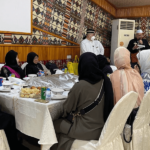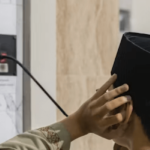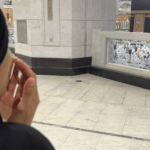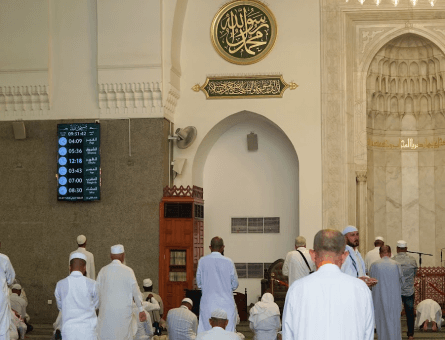5 Pieces of Advice For Every Muslim Who Has Lost a Loved One in Islam
Death stands as the one lasting truth in a world that never stays the same. It hits hard, stirring up deep sorrow and sadness for those left behind. Grief shows itself differently for everyone, like a shadow that clings tight and makes the chest feel heavy. It can wrap the mind in a thick fog, sparking waves of worry and black moods that seem hard to escape. Understanding how this darkness works helps those going through it find little sparks of light. Anyone facing loss will benefit from this insight, as it offers a way to hold on when the weight feels too much. Keep reading to discover surprising ways people have found to ease this burden and bring back hope.
As Muslims, we often forget about the temporary nature of life. This is where the death of loved ones serves as a reminder, a sign that one day we must also return to the Creator. Even though there is no exact timeline for healing, the idea is to have hope, patience, and trust in Allah SWT to ease our hearts.
So, if someone you love has recently passed away, this article is for you. Keep reading to learn the advice for every Muslim who has lost a loved one and the Sunnah on how should Muslims cope with grief.
Moments before Death in Islam
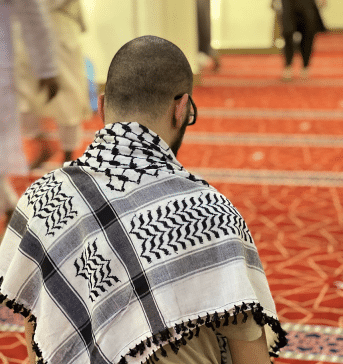
This will give you the most humble yet spine-chilling reminder of the fact that every soul shall taste death. In other narrations, it is also said that minutes before a person dies, they envision their whole lives while bearing the pangs of death, an unbearable pain that every soul must bear.
Prophet Muhammad (SAW) said, “Verily when the soul leaves the body, the eyes will follow.” And the Sunnah of Prophet Muhammad (PBUH) was then to close the eyelids of that person. He (PBUH) instructed his Ummah to only say good about the deceased, forgive them, and pray for them.
Signs of a Good Death in Islam
A good death comes only to those Muslims who are outwardly and inwardly on the path of light. The signs of a good death gives the dying person glad tidings as they mean that Allah SWT is pleased with them, hence He (Allah SWT) makes death for the person easy and peaceful. Some signs of a good death in Islam are given below:
- Uttering the Shahadah (testimony of faith) when dying.
- Dying of plague.
- Dying on a Friday (day or night.)
- Dying with sweat on the forehead.
- Dying in pregnancy or childbirth.
- Dying as a martyr–while defending one’s wealth, life or religion.
- Death caused by pleurisy, tuberculosis, drowning, and/or burning.
- Dying while doing a righteous deed.
In the case of dying during Ramadan, the hadith that says that during the month of Ramadan, the gates of Heaven are opened, and the doors to hell are closed, indicates that when a person dies during the month of Ramadan, their soul goes straight to Jannah and is saved from the questioning of the grave. However, there are mixed opinions about this.
What Happens When a Muslim Dies?
Death is the most frightening yet most realistic proof of this worldly life. According to a verse from the Holy Quran, when a Muslim passes away, “Allah SWT takes the souls at the time of their death.” [Holy Quran, 39:42]
After the death of a person, their family conducts Ghusl (the Islamic ritual of physical purification) and then brings the Janazah (funeral) to a mosque where the Namaz-e-Janazah is performed. After this, the body is buried six feet underground and left alone to be questioned by Munkar and Nakeer, the angels responsible for asking questions regarding faith.
Make Dua for the Deceased
One of the most powerful and greatest gifts that Muslims can give to one another is the gift of dua (supplication). The Messenger (PBUH) of Allah SWT once said, “When a man dies, his deeds come to an end except for three things; Sadaqah Jariyah (a continuous charity), a knowledge which is beneficial, or a virtuous descendant who prays for him.” (Muslim)
The Almighty has on several occasions said that it is only dua that has the power to change a person’s destiny. Therefore, when grieving the loss of a loved one, a person should try to make as much dua for them as possible.
They should pray that the one who passed away has a peaceful afterlife and the highest rank in Jannah. It is believed that dua will help them in Barzakh, the place between the afterlife and this world. Doing so will bring a sense of peace and calm to your heart as you will honour their memory.
However, to make dua, you do not need to visit the graveyard. You can simply pray for them from your home. Just ensure to have it be a part of your daily routine. Allah SWT in the Holy Quran mentions verses that should be read for people who have passed away:
“Our Lord, You have encompassed all things in mercy and knowledge, so forgive those who have repented and followed Your way and protect them from the punishment of Hellfire. Our Lord, and admit them to gardens of perpetual residence which You have promised them and whoever was righteous among their forefathers, their spouses, and their offspring. Indeed, it is You who is the Exalted in Might, the Wise.” [Holy Quran, 40:7-8]
What to Say to Someone Who Lost a Family Member Islam
It is guided by Prophet Muhammad (SAW) that when you talk to someone who has just lost a family member, say:
Inna Lillahi wa Inna Ilaihi Raji’oon.
‘Indeed we belong to Allah, and indeed to Him we are returning.’ [Holy Quran, 2:156]
That I might do righteousness in that which I left behind. No! It is only a word he is saying, and behind them is a barrier until the Day they are resurrected. “[Holy Quran, 23:100]
Give Sadaqah Jariyah on Behalf of the Deceased
Allah SWT has also advised people to give Sadaqah Jariyah on behalf of the one who has passed away. This can be in the form of any ongoing act of charity that can benefit the deceased for years to come, including planting a tree in their name so that people and animals can enjoy its fruit and shade, and installing a water fountain from where others can drink water.
Allah SWT in the Holy Quran states, “Indeed, it is We who bring the dead to life and record what they have put forth and what they left behind, and all things We have accounted for in a clear register.” [Holy Quran, 36:12]
Therefore, when a person makes a donation in the name of those who have passed away or are living, note that they will receive the full reward for the act as will the one who has died.
Prophet Muhammad (PBUH) said, “There is no household of whom one person dies and they give charity on his behalf after his death, but Jibreel (AS) will present it to him on a platter of light. He will stand at the edge of the grave and say: ‘O occupant of the deep grave, this is a gift given to you by your family, so accept it.’ Then he will enter upon him, and he will be delighted thereafter and rejoice, and his neighbours (in the graveyard) who were not given anything will be sad.” (Tabarani)
Do the Dead Know When We Pray for them Islam?
Yes, indeed the dead know everything about us and whatever is happening in this world. Soon after their soul leaves the body, a person is taken to Barzakh. This means that your loved ones after dying will know whether you are praying for them or not. Therefore, when grieving the loss of loved ones, recite the following dua to pray for the dead with every Namaz (Salah):
Allaahum-maghfir lihayyinaa, wa mayyitinaa, wa shaahidinaa, wa ghaa’ibinaa, wa sagheerinaa wa kabeerinaa, wa thakarinaa wa ‘unthaanaa..
“O Allah forgive our living and our dead, those who are with us and those who are absent, our young and our old, our menfolk and our womenfolk…” (Ibn Majah 1/480, Ahmad 2/368. See also Al-Albani, Sahih Ibn Majah 1/251)
Practise Sabr
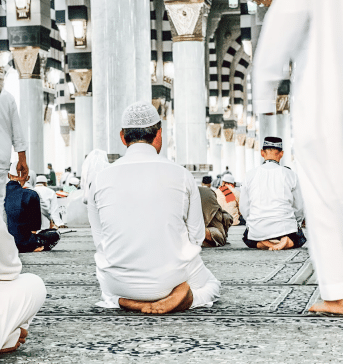
Allah SWT says in the Holy Quran, “And We will surely test you with something of fear and hunger and a loss of wealth and lives and fruits, but give good tidings to the patient, who, when disaster strikes them, say, ‘Indeed we belong to Allah SWT and indeed to Him we are returning.’” [Holy Quran, 2:155 156]
Abdur Rahman ibn Awf (RA) reported, “Even you, O Messenger (PBUH) of Allah SWT?” The Prophet (PBUH) said, “O Ibn Awf, this is mercy.” Then, the Prophet (PBUH) wept some more and he said, “Verily, the eyes shed tears and the heart is grieved, but we will not say anything except what is pleasing to our Lord. We are saddened by your departure, O Ibrahim.” (Bukhari)
Aiding and Forgiveness
In life, we might have a number of disagreements with the people we love. However, knowing that this life is temporary, Prophet Muhammad (PBUH) has instructed his people not to hold any grudges against each other and forgive each other as you never know which day will be your last. Therefore, when someone passes away, forgiving them in itself is a huge gift. Furthermore, you can also help their family or the deceased by paying off their debt or arranging their funeral.
“And let them pardon and overlook. Would you not like that Allah should forgive you? And Allah SWT is Forgiving and Merciful. [Holy Quran, 24:22]
Reflection
Death isn’t all about grief but rather a time of reflection. It is a reminder to the living that life is temporary and that we should invest in our hereafter. Therefore, we must practise mercy and kindness, spread love, and try our best to become better human beings.
The Messenger (PBUH) of Allah SWT said, “I prohibited you from visiting graves, but visit them now. Verily, they will weaken your attachment to the world and remind you of the Hereafter.” (Ibn Majah)
What Does Allah SWT Say about Grief?
Allah SWT in the Holy Quran says, “And those who believed and whose descendants followed them in faith – We will join with them their descendants, and We will not deprive them of anything of their deeds.” [Holy Quran, 52:21]
Allah SWT says in the Holy Quran, “And We will surely test you with something of fear and hunger and a loss of wealth and lives and fruits, but give good tidings to the patient, who, when disaster strikes them, say, ‘Indeed we belong to Allah SWT and indeed to Him we are returning.’” [Holy Quran, 2:155 156]
Islamic Quotes About Losing a Loved One
Anas bin Malik (RA) narrates, “We went with Allah’s SWT Messenger (PBUH) to the blacksmith Abu Saif, and he was the husband of the wet-nurse of Ibrahim (the son of the Prophet SAW). Allah’s SWT Messenger (PBUH) took Ibrahim and kissed him and smelled him and later we entered Abu Saif’s house and at that time Ibrahim was in his last breaths, and the eyes of Allah’s SWT Messenger (PBUH) started shedding tears. `Abdur Rahman bin `Auf said, ‘O Allah’s SWT Apostle, even you are weeping!’ He said, ‘O Ibn `Auf, this is mercy.’ Then he wept more and said, ‘The eyes are shedding tears and the heart is grieved, and we will not say except what pleases our Lord, O Ibrahim! Indeed we are grieved by your separation.’” (Hadith; Sahih al-Bukhari 1303)
Hazrat Aisha (RA) reported that, “Something bad was said in the presence of the Prophet Muhammad (PBUH) about a person who had died. He said: ‘Do not say anything but good about your dead.’” (Hadith; Sunan an-Nasa’i 1935)
The Messenger of Allah (PBUH) said, “When a man’s child dies, Allah SWT, the Exalted, asks His angels, ‘Have you taken out the life of the child of My slave?’ and they reply in the affirmative. He (SWT) then asks, ‘Have you taken the fruit of his heart?’ and they reply in the affirmative. Thereupon He asks, ‘What did my slave say?’ They say: ‘He praised You and said: Inna lillahi wa inna ilaihi raji’oon (We belong to Allah SWT and to Him we shall return).’ Allah says: ‘Build a house for my slave in Jannah and name it Baitul-Hamd (the House of Praise).’” (Hadith; Riyad as-Salihin 922)
Summary – Advice for Every Muslim Who Has Lost a Loved One
At any stage in life, the loss of a loved one is the most painful event that one must go through. However, it is the harsh truth of life. The passing away of a dear one is indeed a reminder that this life is temporary and one day even we shall pass away.
Therefore, a person should take the incident as a reminder to take care of their loved ones, ask for forgiveness from Allah SWT, perform good deeds, and reflect on the life that they have lived. As for the ones who have passed away, you should pray for them in every Namaz (Salah), and give out Sadaqah Jariyah in order to create ease in their afterlife.







